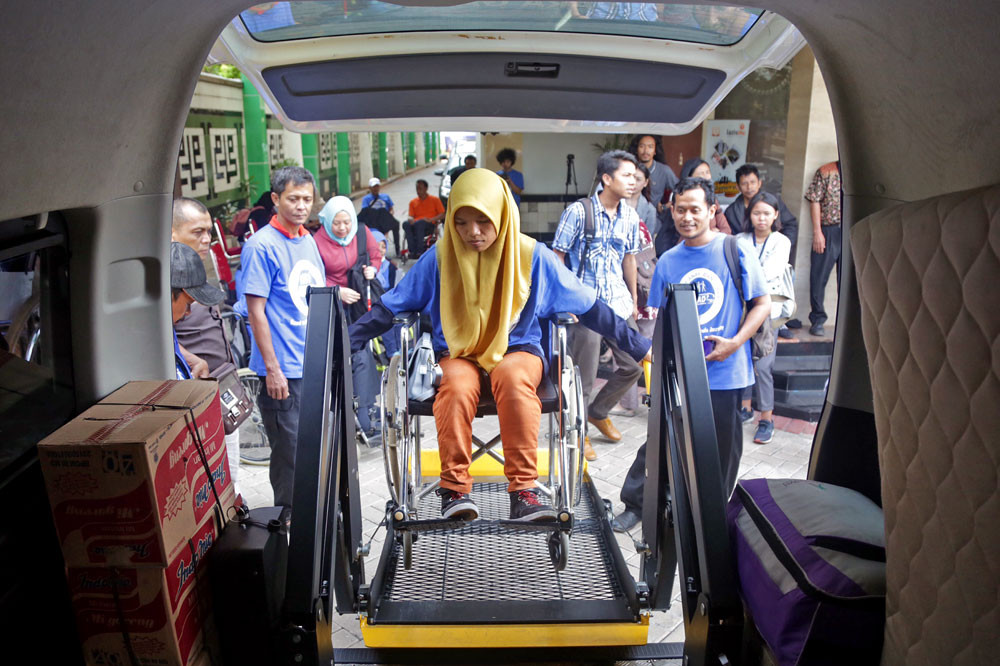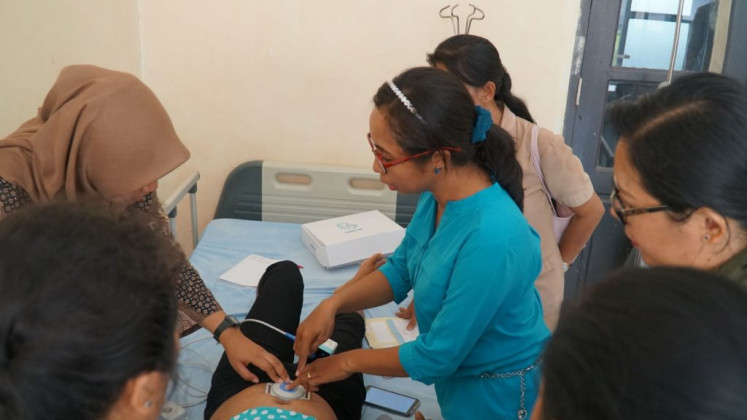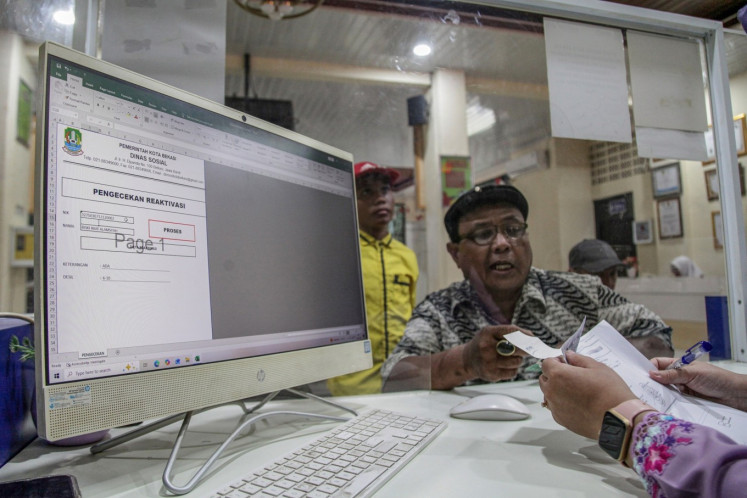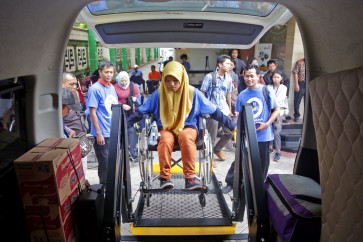Popular Reads
Top Results
Can't find what you're looking for?
View all search resultsPopular Reads
Top Results
Can't find what you're looking for?
View all search resultsIndonesia's social entrepreneurship deserves Prabowo's attention
Social enterprises are already contributing despite limited government support. With strategic backing from Prabowo’s administration, their impact could expand significantly.
Change text size
Gift Premium Articles
to Anyone
 A girl uses a wheelchair lift to enter a van designed for physically challenged passengers during a child-friendly and disability-friendly 'mudik' (exodus) ceremony for those heading to Lampung and Palembang, South Sumatra, at the Muhammadiyah headquarters in Jakarta on May 30, 2019.
(The Jakarta Post/Wendra Ajistyatama)
A girl uses a wheelchair lift to enter a van designed for physically challenged passengers during a child-friendly and disability-friendly 'mudik' (exodus) ceremony for those heading to Lampung and Palembang, South Sumatra, at the Muhammadiyah headquarters in Jakarta on May 30, 2019.
(The Jakarta Post/Wendra Ajistyatama)
I
ndonesia’s social entrepreneurship movement has deep historical roots, existing well before the nation’s independence. Today, it is a promising pathway for combining sustainable business with social impact.
As President Prabowo Subianto’s administration emphasizes empowering local businesses, especially micro, small and medium enterprises (MSMEs), social entrepreneurship could be crucial in driving Indonesia toward economic resilience and social progress.
Prabowo’s vision is ambitious: Achieving 8 percent annual economic growth, aiming to propel Indonesia to high-income status by 2045. When well-supported, social entrepreneurship can make this goal attainable by creating social and economic benefits for communities nationwide.
MSMEs are fundamental to Indonesia’s economy, contributing over 60 percent to the gross domestic product (GDP) and employing more than 97 percent of the workforce. In urban and rural areas, MSMEs support livelihoods where formal employment is limited. Yet, for many impact-oriented MSMEs, growth is frustratingly slow. Unlike typical businesses, social enterprises operate under dual mandates: Turning a profit and achieving social goals. However, Indonesia lacks precise data on how many of these MSMEs qualify as social enterprises.
Indonesia’s legal definition of social enterprises is loose, describing them as entities that have operated for at least one year, work toward Sustainable Development Goals (SDGs) and reinvest at least 51 percent of profits toward a social mission aligned with the SDGs. However, Indonesia does not differentiate the form of legal entity between “conventional enterprises” and “social enterprises”; both are categorized as Perseroan Terbatas (PT) (Limited Liability Companies) under the law.
This uniform categorization creates challenges. First, taxation inequity: Social enterprises face the same tax obligations as profit-driven businesses despite reinvesting significant portions of their profits into societal goals. Then, capital barriers, a Rp 10 billion (US$650,000) minimum capital investment for foreign investors to be able to establish a limited liability company in Indonesia deters investment in scalable, impact-driven MSMEs who might not need a significant amount of capital but lack domestic support.
Relying on that loose definition, these enterprises navigating an ecosystem geared toward traditional business models can be challenging. The regulatory landscape, designed for conventional corporations or foundations, creates steep capital requirements and tax obligations that weigh down small-scale social ventures. Social enterprises need more precise frameworks and incentives to scale, leaving communities that depend on them without the transformative support they offer. Although the government has recently campaigned to renew its database by announcing that social enterprises will categorize themselves as such, the follow-up incentives for this policy still need to be determined.


















